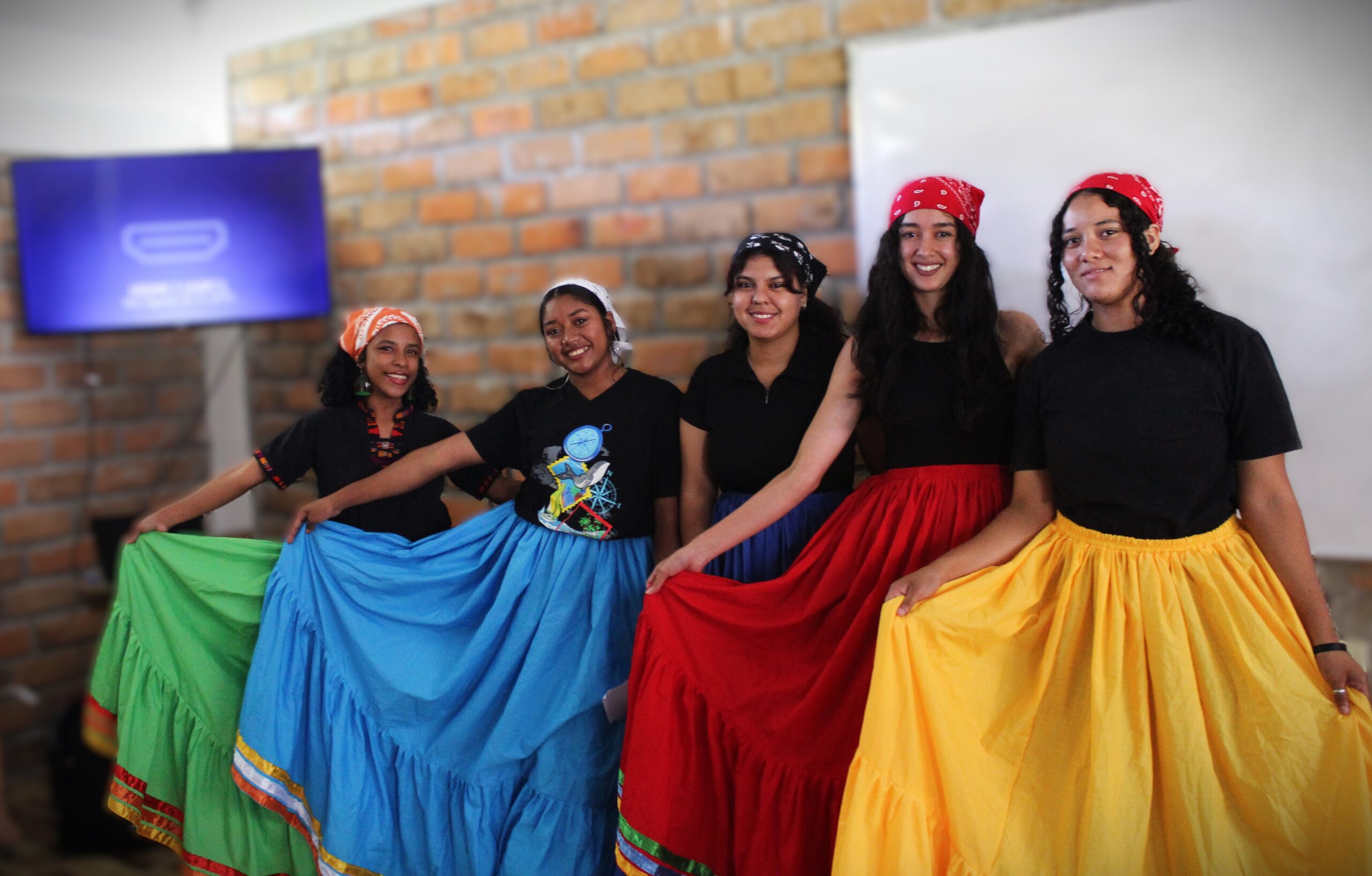August 9th marks World Indigenous Peoples Day, a day dedicated to recognizing and celebrating the rich cultures, histories, and contributions of indigenous peoples worldwide. In honour of this day, we turn our focus to the indigenous people groups here at LMI in Honduras.
Overview of Indigenous People Groups in Honduras
Honduras is home to several indigenous groups, each with its own distinct culture and history. Among these groups are the Garifuna, Miskito, Lenca, Pech, Tolupan, and Chorti. These communities have preserved their languages, traditions, and ways of life despite numerous challenges over the centuries.

Some of our second years during a presentation of their chosen group of indigenous peoples in history class.
Cultural Heritage and Traditions
The indigenous people of Honduras boast a vibrant cultural heritage. From traditional dances and music to unique artisanal crafts and culinary practices, these communities have maintained their cultural identities through generations. The Garifuna are known for their lively Punta music and dance, while the Lenca are renowned for their intricate pottery and textiles.
Efforts and Initiatives for Empowerment
In response to these challenges, various organizations and initiatives are working to empower indigenous communities in Honduras. Programs aimed at improving access to education, healthcare, and legal support are making a positive impact. Additionally, efforts to promote indigenous languages and cultural practices help preserve these vital aspects of their heritage.
Interview Highlight
To gain a deeper understanding of the experiences of indigenous people in Honduras, we spoke with one of our students, Debora, a member of the Miskito indigenous people. Here are some insights from our conversation:
Tell me about your people, where do they come from?
“In Honduras they are in the department of Gracias á Dios. I am from the community Brus Laguna, but right now I am living in Puerto Lempira, it’s the capital of Gracias a Dios.
According to the story, we are a mix of the natives of Gracias á Dios, Africans and Spaniards. The Miskitos are only found in Honduras and the border of Nicaragua. My father is from Nicaragua.”
What is it like being indigenous?
“I am proud to be someone of indigenous ancestry, but sometimes it comes with a lot of responsibilities because wherever we go, we have to tell people about our roots.”
What is like your community like?
“In terms of economics it is okay, my people have learnt the get by with fishing and farming. The community is very beautiful amid economic problems we help one another to get by.”
As a Miskito do you have to marry someone who is also part of your people or is it okay to marry outside of your people?
“No. We don’t need to marry our own we can make our own choice and marry whoever we want to.”
What is your favorite thing about being Miskito?
“Wow! There are so many things. Belonging to a culture and the food. I feel quite united with other Miskitos even if we have never met, there is an instant connection because we come from the same culture.”
Do you have your own language?
“Yes, but we don’t call it a language we call it a dialect, since each ethnic group has its own internal language, because it doesn’t exist in other places, only here.”
Is there something that you are known for?
“Yes, there are two things. We are known for our nature reserve: Biosfera Del Rio Platano. As well as a town called La Ciudad Blanca.”
Have you experienced difficulties or discrimination because you are indigenous?
“Yes, many. I came to do an exam to get into university, and lot of people didn’t speak with me because I am Miskito and because of the color of my skin. They also asked me quite a few questions. One of them were if we still use traditional clothes and if we still live in extreme poverty. These are quite insulting questions.”
How do you respond when people come with their questions and their insults?
“First, I laugh and tell them they are wrong and I start teaching them about my culture and show them videos, that is how I shut them up, I try to do it in the most humble way possible whilst still being proud.”
What is your religion? What do you believe in?
“I am Evangelical, but most Miskitos are Moravian, it’s a religion that was brought in through colonization, we see it as a denomination of Christianity but it’s quite complex, but they believe in God and the God-Head. I myself am evangelical.”
Do you have a relationship with God?
“Since I was young, my father is a pastor.”
Before we ended our interview Debora wanted to conclude with following:
“Personally, being Miskito is the best thing that has ever happened to me. To belong to a culture… I feel motivated to know more about my culture because it is very beautiful. There are a lot of gems to discover about the history of Miskito for history lovers.
In general, I feel quite proud to be Miskito, and when people come with their insulting questions, I feel even more proud to be Miskito and I try to educate others about myself and my people.”
Conclusion
As we celebrate World Indigenous Peoples Day, it is essential to recognize the contributions and resilience of indigenous communities in Honduras. By understanding their challenges and supporting their efforts, we can contribute to preserving their rich cultural heritage and ensuring their voices are heard.
